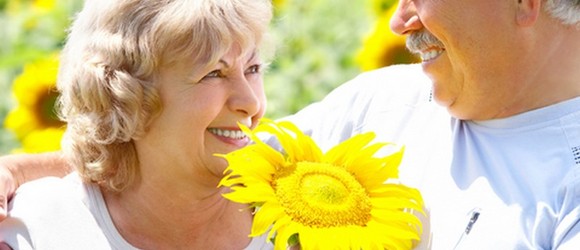
12 Tips to Protect Your Senior: Take the Sizzle out of Summer Heat
Ahh..Summer!
People everywhere, after shivering all winter, look forward to the hot summer months. But along with the comfort this season affords, the summer sunshine, UV rays, and the heat, can bring health risks, especially for seniors. It is imperative to check in on seniors regularly during the summer, especially when there is excessive heat in the forecast.
Heat Related Illnesses
There are different heat related illnesses that a senior may experience in summer. It is important that they are recognized and that proper action is taken to treat the emergency.
Heat Exhaustion
- A result of heavy work or exercise in a warm place can lead to loss of body fluid, decreased blood flow to organs and possibly shock.
- Symptoms may include flushed and clammy skin, excessive perspiration, nausea, headache, dizziness and weakness.
Heat Cramps
- Muscle pain or spasms felt in the legs or abdomen as a result of exertion in summer.
This could be the result of profuse sweating the heat cramps are actually an early sign of the body coping with the heat. Sunstroke or Heat Stroke
- Extremely dangerous and can be fatal.
- The body has a temperature control system. If that stops working, the body temperature can rise to the point that brain damage occurs.
- If you suspect sunstroke call 911 immediately.
Signs of a sunstroke may include high body temperature, vomiting, loss of consciousness, shallow, rapid breathing and weak, yet rapid pulse. Preventative Measures for Summer Heat and Sun
✓Invest in an affordable air conditioner to cool down at least one room, for when the heat is excessive.
✓if you don’t have air conditioning, spend part or most of each day at locations with air conditioning, including a friend’s house, shopping mall, senior centre, or movie theatre.
✓Wear a wide brimmed hat when outdoors.
✓Wear lightweight, loosefitting clothes. Layer your clothing. Choose lighter colours, which reflect heat.
✓Wear full coverage (wrap around) sunglasses for the best eye protection.
✓Glasses that block UVA and UVB rays can help reduce the cumulative effect of damage linked to cataracts and agerelated macular degeneration.
✓Use sunscreen on exposed body parts, including the face and ears. (SPF of 30 minimum)
✓Always have water handy to hydrate, ensuring 6 to 8 glasses of water are drunk daily, and more if there is excessive perspiration.
✓Avoid caffeine and alcohol, which dehydrate the body.
✓Cool the home by keeping hot, humid air outdoors. Shut windows and doors, as well as blinds or shutters.
✓Eat light foods, like yogurt, fruits, and vegetables in smaller portions to avoid the body from overworking and overheating. Keep frozen treats available that have a high water and low sugar content, like sugar free Popsicles (you can make your own using juice).
✓Avoid strenuous activities, especially during peak heat. If necessary, finish these tasks in the early morning or in the evening. Enjoy a cool shower after these activities.
✓Review your medications as some medications can cause side effects, like increased sensitivity to ultraviolet (UV) rays. Check with a doctor or pharmacist with any questions.
Summer means gardening, cookouts, and enjoying the great outdoors but seniors and their caregivers must be vigilant of possible ill effects from the sun and high temperatures. If aware of the hazards and proactive about preventative measures, all the fun of the summer months can be enjoyed without risk.
